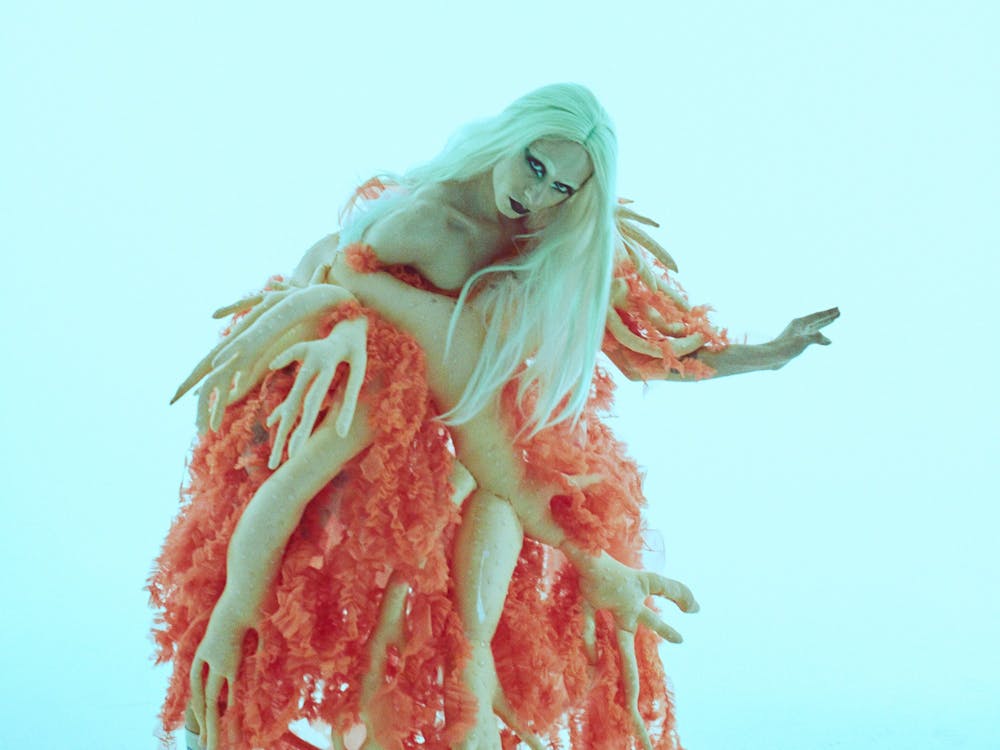Amid exams and final papers, Duke still has something to celebrate this week.
From Wednesday, Dec. 4 to Friday, Dec. 6, “Celebrating Queerness in Modern Turkey” is bringing Istanbul-based queer artists-in-residence Madir Öktis, Ceytengri and Lütfi Urfali to campus for a discussion panel on Wednesday, a drag workshop and show on Friday and class visits throughout the week.
“Learning through our shared or similar experience is what empowers us as the queer community,” Ceytengri wrote in an email. “I’d like to give Duke a taste and take a bite for myself.”
The idea for the residency was born from senior Gentry Fitch’s capstone project documenting underground queer creative communities in modern Turkey, which led to a six-week stay in Istanbul over the summer and meeting “the most badass people in the whole wide world,” according to Fitch.
“[They] definitely changed my life and kind of helped me understand queer liberation a lot better. I think that the queer culture needs to be shocked a little bit in the West,” Fitch said. “I want[ed] to bring these people to Duke and figure out a way to have their stories be as raw as possible — there’s really no way that I could collect the power that they bring as human beings in any form of documentary.”
Fitch’s interest in Turkish queer culture originated years ago during an excursion to Istanbul while studying abroad in Berlin.
“The ways that [queer people in Turkey] talked about their friends, the creative communities they’re part of, the unique dimensions of oppression they face are just something I really haven’t been exposed to here in the U.S.,” Fitch said.
Homosexuality was decriminalized in 1858 by the Ottoman Empire, the predecessor of modern-day Turkey, but the country was ranked the second-most restrictive in Europe for LGBTQIA+ equality in May. In 2002, while campaigning for Prime Minister, Turkish President Recep Tayyip Erdoğan stated that “homosexuals must also be given legal protection for their rights and freedoms.” Over a decade later, Erdoğan referred to homosexuality as “contrary to the culture of Islam”, the country’s predominant religion. Turkey was found to have the highest murder rate for transgender people in Europe in 2016.
“In the world of RuPaul and gay memes and Queer Eye … we have been really lucky to watch queerness become something normalized [in the United States],” Fitch said. “I cannot say how much work we still have to do … but there has been a lot of tangible progress that gives me this sense that we’re now resting on our laurels.”
During his stay in Istanbul, Fitch experienced some of the country’s queerphobia firsthand, despite finding “amazing allies” and being in one of the world’s largest metropolises. He recalled an instance where a passerby spat at his group of friends as they walked down the street dressed in drag.
“These were just things that [queer people in Istanbul] face daily,” Fitch said. “There are so many things still to be done within the United States ... but I’d be remiss if I didn’t mention this growing idea that we’ve done it. We’ve got marriage, we’ve got non-discrimination policies growing — those are all lovely, but queer liberation is not just about assimilating into existing structures. It’s more than that. Frankly, I don’t know what it means to be more than that, but I know that there’s something, because I see these queer people in Turkey thrive.”
Istanbul’s government banned Pride events in 2015, and efforts to celebrate have been violently dispersed by police ever since. According to Fitch, the artists-in-residency have attended and helped organize Istanbul Pride celebrations despite the ban.
“I aim to be a nonbinary rockstar in my community… and to encourage other enbies to go out on the street, be present and visible,” Ceytengri wrote. “I’ll go out wearing six-inch heels while sporting a beard … because it’s my damn right. I want to show there are ways other than androgyny to be nonbinary and [that] gender nonconformity isn’t only possible in the West.”
Upon moving to Istanbul in early 2018, Ceytengri became part of a community of “lots of people who were aggressively queer,” but found that most activists had yet to internalize the term ‘nonbinary,’ often misgendering Ceytengri and her friends.
“Nowadays, we don’t really let cis[gender] queer people stare at us in a weird way, let alone misgender us,” Ceytengri wrote. “We are not content with living in the shadows anymore. We’re taking back the sunlight.”
Fitch highlighted the significance of Wednesday’s discussion panel in allowing the artists to share their stories.
“These people are so powerful ... and so effective about enforcing this immense love that every single one of them in the community has for one another,” Fitch said. “If Duke claims to be this global institution, when it comes to queer liberation on this campus, let us not ignore the atrocities that queer people face day in and day out in places like Turkey.”
Correction: Öktem Usumi is known professionally as Madir Öktiş. The Chronicle regrets the error.
Get The Chronicle straight to your inbox
Sign up for our weekly newsletter. Cancel at any time.

